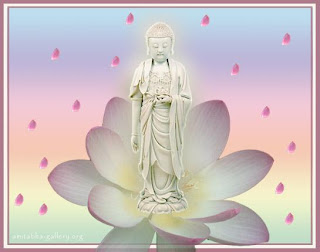Emptiness and the Middle Way

The above two aspects of Emptiness should be realized together as they balance to show the Middle Way beyond all extremes. Realizing the first aspect of Emptiness without the second can lead one to be greedy and selfish-falsely, believing that all pleasures and material things are "real" and lasting. Realizing the second aspect without the first can lead one to be pessimistic, passive or immoral, falsely believing that nothing is worth striving for as everything is hollow and meaningless. It is therefore very important to see both of these aspects together in order to function with Wisdom in a balanced way in everyday life. One should learn to perceive everything as they are while knowing the true nature of their existence. One who realizes Emptiness is able to live positively with great ease and freedom, treasuring everything without attachment. Emptiness is not Nothingness Emptiness does not mean physically or mentally nothing or nothingness - it is the law of total opennes...





